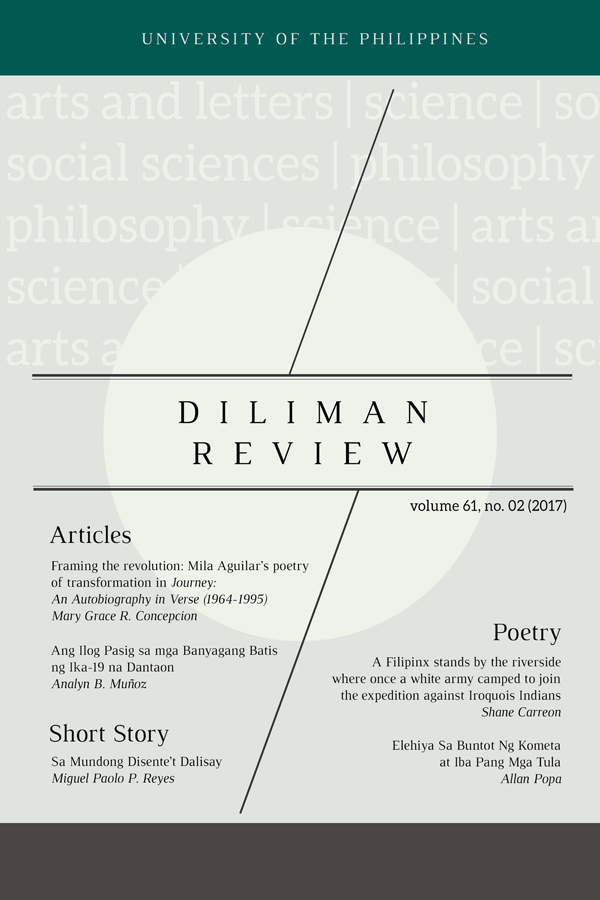Framing the revolution: Mila Aguilar’s poetry of transformation in Journey: An Autobiography in Verse (1964-1995)
Abstract
For more than three decades, Mila Aguilar has been writing and publishing poetry in various stages of her life: as a young college student, a university instructor, an underground cadre (as Clarita Roja), a politicalprisoner, and a born-again Christian. While these poems may have been written and published at the moment, her poetry collection Journey: An Autobiography in Verse (1964-1995) is a definitive anthology of her works
spanning these 31 years. This book not only gathers her poems but also maps her transformation particularly from an underground cadre to a born-again Christian. In this article, I examine the following: 1.) the paratextual markers that invite the readers to approach her work autobiographically, and 2.) the poetic form and structure to show how the revolution frames Aguilar’s life and how she frames the revolution in her poetry. For more than three decades, Mila Aguilar has been writing and publishing poetry in various stages of her life: as a young college student, a university instructor, an underground cadre (as Clarita Roja), a political prisoner, and a born-again Christian. While these poems may have been written and published at the moment, her poetry collection Journey: An Autobiography in Verse (1964-1995) is a definitive anthology of her works
spanning these 31 years. This book not only gathers her poems but also maps her transformation particularly from an underground cadre to a born-again Christian. In this article, I examine the following: 1.) the paratextual markers that invite the readers to approach her work autobiographically, and 2.) the poetic form and structure to show how the revolution frames Aguilar’s life and how she frames the revolution in her poetry. Through this, I trace how her poems mark her early engagements and later departures from the National Democratic movement, and how her poems after her Christian conversion give a religious solution to the country’s social problems.
Keywords: Mila Aguilar, revolutionary poetry, women’s writing, National Democratic Revolution, Philippine literature


